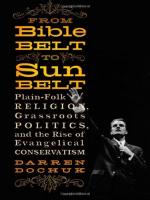|
This section contains 3,105 words (approx. 11 pages at 300 words per page) |

|
The dichotomy implied by the terminology of "folk" or "little" versus "orthodox" or "high" religious traditions has been challenged in various ways by folklorists, sociologists, and historians of Islam and other world religions. In recent decades folklorists have argued that all religion, at the point of enacted belief, may be considered "vernacular" and "oral." Yet at the same time, both within and across religious traditions and academic disciplines, debates rage on about the viability of terms like "folk" and "orthodox." The manifest vitality of abundant local variations on religious practice, and the debates that ensue among believers about their authenticity or permissibility, continue to fuel concern beyond the academic.
South Asia, more particularly India, provides a poignant example. Imtiaz Ahmad in the 1970s and early 1980s produced a series of volumes documenting and arguing the indigenous "Indianness" of South Asian Islamic belief and practice. His ethnographic...
|
This section contains 3,105 words (approx. 11 pages at 300 words per page) |

|



